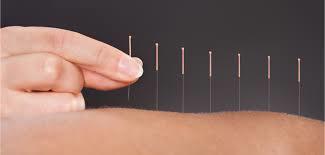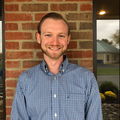
Acupunture v. Dry Needling- What's the Difference?
Acupuncture and Dry needling, they look very similar but how are they different?
In this post we will overview
- a summary of acupuncture
- a summary of dry needling
- how to determine which may be a better fit for you
What is Acupuncture?
Acupuncture is technique in which practitioners stimulate specific points on the body by inserting thin, solid, sterile one-time use needles into the skin along acupuncture meridian lines and musculoskeletal trigger points. Often times these points are "pre set" along various body areas.
Research shows that acupuncture can be hightly effective when treating the appropriate conditions, such as low back painn, neck pain, TMJ (jaw pain), reducing frequency of tension headaches and migraines, lessoning the pain from osteoarthritis of the knee and alleviating nausea due to chemotherapy or pregnacy. It's also an option for people living with chronic pain disorders, inflammatory disorders or fibromyalgia. It has been shown to be an excellent adjunct to standard care.
What is Dry Needling?
Dry needling involves using sterile, one time use needles to target muscle notes or "trigger points". Often these needles are inserted deeper in order to address the exact muscle. Common results include reduction in pain and decreased muscle spasm.
Which is best for you?
Each person and there injury is different and requires a unique approach. Generally dry needling is useful for acute recent injuries (muscle strain, sports injuries etc) that have a myofascial component. Alternatively acupuncture is excellent with more recurrent or chronic conditions (tension headaches, TMJ, long standing low back pain). Regardless dry needling or acupuncture can be an excellent adjunct to a standard course of treatment.
Dr. Kemp is a chiropractic physician and he is certified by the state chiropractor board to practice acupuncutre. He has recived over 300 hours of acupuncture training in addition to his fellowship in Medical Acupuncuture. He also has extensive training in dry needling technique.




